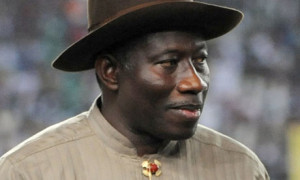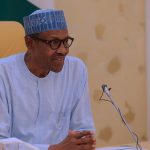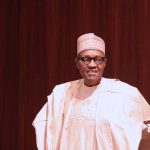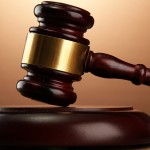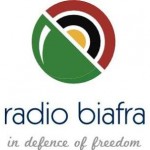Opinion: Nigeria Approaching its Crossroads and the Redline
Featured Contributors/Columnists, Latest Headlines Monday, November 3rd, 2014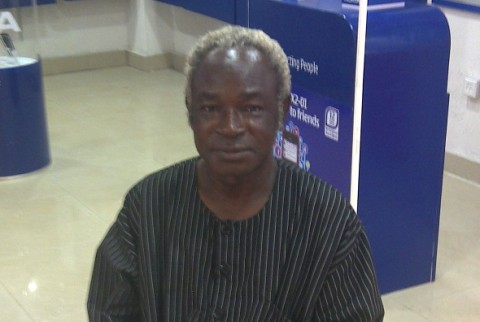
By Prof. R. A. Ipinyomi, University of Ilorin, Nigeria
By now, even members of the ruling party in Nigeria since May 29 1999 PDP should know that all is not going to go well in the direction their leadership is taking Nigeria down the road of confusion, decamping, denial of ceasefire by Boko Haram and making uncertainty hanging around the 2015 general elections. For many of us, Nigeria is approaching a major crossroad symbolized by continuous unabated insurgencies, disunity within the ruling party indexed by frequent decamping, the suspected inability of the federal government of Nigeria to distinguish between members of Boko Haram and a few other members still loyal to Nigeria armed forces. The fears and suspicions that there may be no more girls to bring home from the 219 Chibok Government Girls Secondary School stolen by Boko Haram unless each girl is assisted to escape on their own, that there might never have been any serious negotiation with the Islamic militant insurgents while government officers went on the air to claim such, there may also never have been true democracy in Nigeria but arranged and make-believe pseudo types. Eventually we shall know the truth and it will be too late for our politicians, whether those in government or those in oppositions. The cans of rottenness and dead worms will eventually burst and its unpleasant ordour taking over the entire vicinity.
We are not too sure if Nigerian leaders read any book or even newspapers because if they do they might have come across history repeating itself coincidentally badly. Nigeria after 54 years of independence is always at the crossroads main on thirst for power. The make believe mass decamping from one party to another we seem to be witnessing is brought about for the wrong reasons; people who could not find space in one party leave to go and disturb the quietness and equilibrium of another party. Soon where they mass transfer would not have space for them then rushing back or to other political parties. That underlying process is ominous for violence and an indication of inability to run a stable democratic system based on ideology.
Therefore it appears to us that Nigeria is already at the dreaded crossroads. Fifteen years of Civilian Rule in Nigeria led by the same political party democracy benefits have not distilled to the general public but only to a few who are earning several millions of naira per month. There are no connections between local politicians and the people they pretend to be representing. All the money they make is not to develop the respective local communities but spend elsewhere. In fact these politicians pay all attention to their monthly pays and no attention at all for their constituencies. There is no road map by way of professional economical, educational or social engineering legislations to guide the people. Instead we hear of debates on early marriages, HND or B.Sc., many things that are not the concern of national legislative body. There can be no doubt therefore that Nigeria has indeed been at the crossroads for a long time. Nigeria leadership has failed to project its expected image of where Nigeria ought to be, short or long term plans. Anyone expecting Nigeria to have moved up on the political and economic ladder and moving Africa along from the crossroads would have been disappointed. Nigerians have failed to get its acts together and move the society forward in oneness.
There is a negative and widespread fear about Nigeria’s next elections coming up from February 2015. Many pundits are already postulating doomsday scenarios for the country’s almost 16 years old but only a fragile democracy. In a way, these fears are not completely misplaced if history offers any lessons. The prevailing circumstances seem to support the fears and apprehension of ordinary Nigerians. General elections organized under incumbent civilian governments in Nigeria have always been marred by serious fraud and violence because of vested interests and INEC not completely independent and equipped enough. The unfortunate consequences of such poorly conducted elections include political instability, which in turn heralded the temptation for killing and sometimes return of the military regimes. We can still recall that the 2011 general election in Nigeria resulted in spontaneous killings and the expansion of Boko Hram activities in parts of the nation. In order to forestall the doomsday scenarios therefore circumstances leading to potential electoral fraud and violence must be minimized. Of course Nigeria’s citizenry ought to maintain extra vigilance henceforth in order to keep the electoral management body, the politicians and their agents in check and on their toes. However the people are apathetic and disfranchised. It is also very important that government agents put things in proper perspective and move away from the near exclusive focus on elections as though Nigeria has a thriving democracy. No, the democracy in Nigeria is only embryonic and in the hands of a few clicks.
We have continued to argue that the present setting of “winner-takes-all” approach is too expensive for Nigeria’s heterogeneous and complex composition. A “winner-takes-all” scheme has a high potential for violence, as the competition is usually of a ‘do-or-die’ nature in a combative way on all sides. The stakes are high. The politicians are usually extremely desperate as everyone focuses only at the end gains called the “enormous spoils of office”. It is now our paramount expectation that INEC should improve the quality of their elections because poor election management system is a direct root cause of deeper political problems whereas a well conducted election has equal potential to legitimize its results and deepen the democratic system.
The politicians must purpose in their hearts to do it right, putting in their full cooperation including personal sacrifices, ensuring proper conduct of elections and maintaining continuity. Already we have our doubt about the general integrity of our politicians who cannot spend five full years in one political party. They keep running helter sketcher, especially once they are not holding office. The Nigerian politicians still in the same political party are there because they are yet to face a simple challenge of out of office even briefly. For example and hypothetically if a Dr Jonathan is not allowed to run under PDP he may decamp to APC if that party would allow him. It is therefore very difficult to measure the strength of a political party in Nigeria because the politicians keep shifting here and there for mere thirst for power. Only one person will emerge as a candidate to represent its party and only one person, out of 2, 3, or from whatever number will win. Politicians too would have to learn the concept of contentment and reframing from over valuing self. They should listen to the people they claim to represent and their comments.
Prof. R. A. Ipinyomi
ipinyomira@yahoo.co.uk or/and raipinyomi@unilorin.edu.ng
Related Posts
Short URL: https://www.africanexaminer.com/?p=19347


